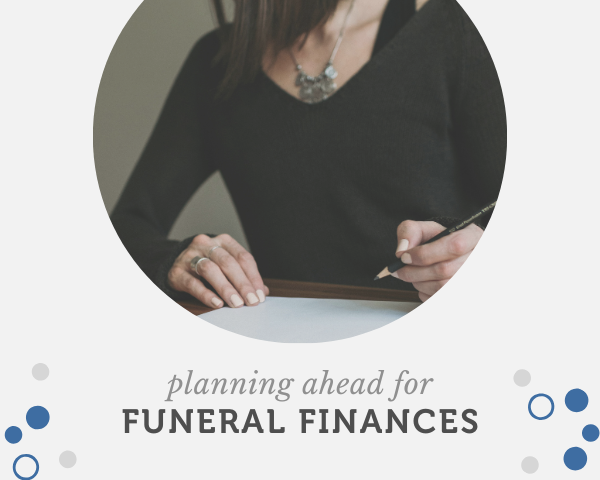Understanding Funeral Options in the UK: A Guide to Direct Cremation, Cremation with Ceremony, and Traditional Funerals
Whether you are planning a funeral for a loved one or planning your own funeral, it is essential to understand the different options that are available. In the UK, there are three popular approaches that each offer a different experience, and come with unique costs: direct cremation, cremation with ceremony, and traditional funerals. This guide will compare these funeral options and shed some light on what is involved in each one, and some things that you should take into consideration when making your decision.
Direct Cremation: A Simple Farewell
In recent years, direct cremation has grown significantly in popularity across the UK. The ideal choice if you are looking for a no fuss cremation, it provides a great mix of simplicity and affordability, with the additional benefit of a reduced environmental impact.


What it involves:
- The deceased is collected and taken directly to the crematorium, hence the term ‘direct cremation’
- The cremation takes place with no service and without anyone attending
- The time is usually decided by the crematorium
- Ashes are returned to the family after the process
Key benefits:
- Low cost cremation, average of £1,600
- No funeral service removes the pressure of organising a formal ceremony
- Allows families to arrange their own memorial event later
- There is the choice of having an urn as a keepsake or to scatter the ashes of the deceased
- The environmental impact is smaller than traditional burials
Many families who choose direct cremation hold separate memorial services or celebrations of life at a later date, in a location meaningful to the deceased, without the time constraints of a crematorium slot. This makes it a flexible option and means that it is easier to keep control of the costs.
Cremation with Ceremony: A Meaningful Middle Ground
A great choice for those wanting a formal or traditional goodbye but preferring cremation to burial, cremation with ceremony offers a balanced approach.


What it involves:
- A cremation with a service, much like a traditional burial and usually held at the crematorium chapel
- Family and friends attend to pay their respects
- Typically includes music, readings, eulogies, and tributes
- Services usually run for 30-45 mins
- Often followed by a wake or reception
Key benefits:
- More affordable than a traditional burial (average cost of £3,000-£4,500)
- Provides closure for loved ones through a formal goodbye
- The service can be highly personalised to meet the needs and wishes of the deceased and family
- Eliminates ongoing grave maintenance costs, whilst still offering a physical keepsake in the form of an urn
These services can be led by a religious leader, a celebrant, or even family members, allowing for personalisation based on the beliefs and wishes of the deceased.
Traditional Funeral: The Conventional Approach
Traditional funerals remain a popular choice in the UK, particularly among those with strong religious ties or cultural preferences for burial.


What it involves:
- Viewing or visitation period before the funeral
- Formal service typically held in a place of worship, led by a religious leader
- Coffin gets transported in a hearse with funeral procession
- Burial in a cemetery or churchyard
- Headstone or marker is placed at the grave
- Often followed by a reception or wake
Key benefits:
- Provides a physical place for people to visit and remember
- The headstone can be engraved and personalised with a message or passage to say something about the deceased
- Aligns with many religious and cultural traditions, allowing the beliefs and wishes of the deceased to be honoured
- Offers a sense of permanence and tradition
- May feel more substantial for some grieving families
Considerations:
- Most expensive option (average cost of burial can be £4,000-£7,000+)
- Requires ongoing costs for cleaning a headstone and other maintenance
- Limited grave space in some areas of the UK
- Least flexible choice of the three options
- Has the biggest environmental impact
Making Your Choice
When trying to decide which of these options is the best for you, there are some key factors to take into consideration:
- The wishes of the deceased - Did they have any preferences - cremation or burial, specific music or poems, a particular location for a ceremony?
- Budget considerations - What is the average cost of your desired approach? What is financially feasible?
- Religious and cultural factors - Are there important traditions that you should honor? Do you need to plan a religious funeral or should you focus on it being non-religious?
- Environmental concerns - Is ecological impact important to you or the deceased? Should you be looking to plan an environmentally friendly funeral?
- Memorial preferences - How do you want to remember and honor the deceased? How would you like to say goodbye to a loved one?
Many funeral directors now offer all three options and can provide detailed information about each. Some families also choose to mix elements - perhaps opting for a traditional service followed by cremation rather than burial. If you or your loved ones have any unique funeral ideas or wishes, we are happy to accommodate all requests so that your loved one can be honoured in the perfect way.
Remember that there is no right or wrong choice - the most important thing is finding an approach that feels meaningful and appropriate for honoring your loved one's memory in a way that brings comfort to those left behind.
If you have any further questions about these three funeral options, or want to learn more about planning the perfect goodbye, contact our friendly funeral directors by calling 01424 436 386 or emailing info@towners.co.uk.




